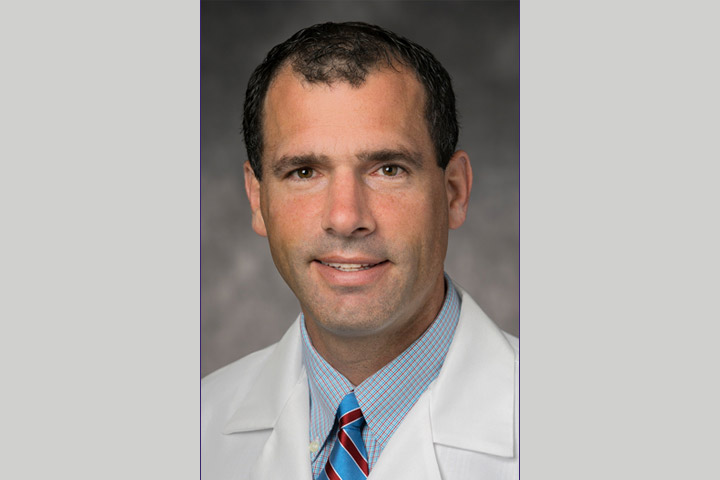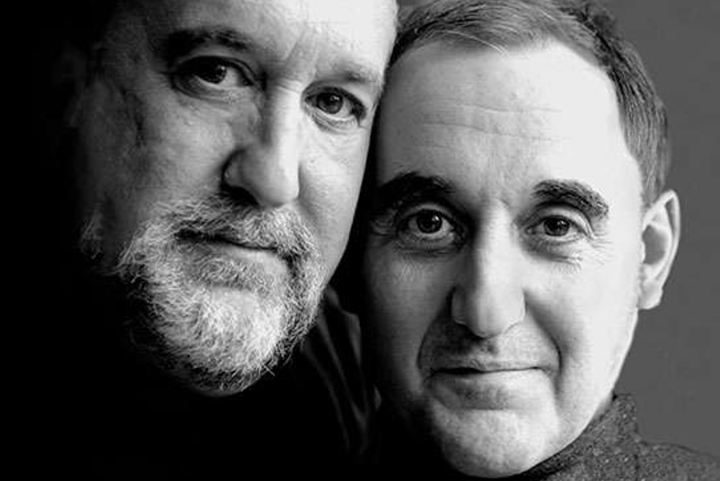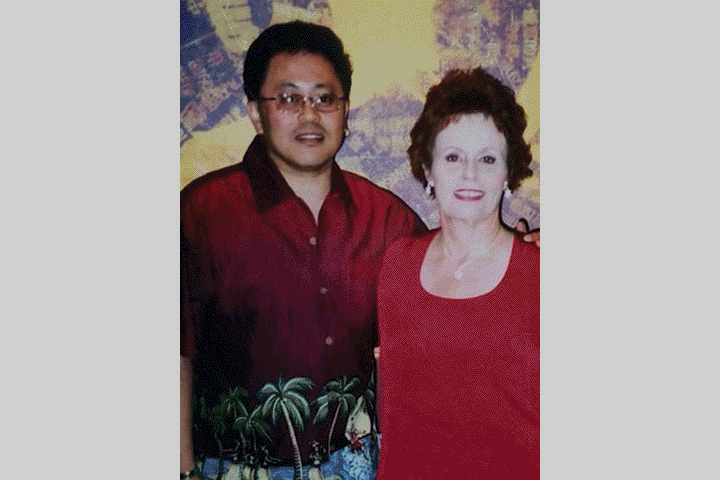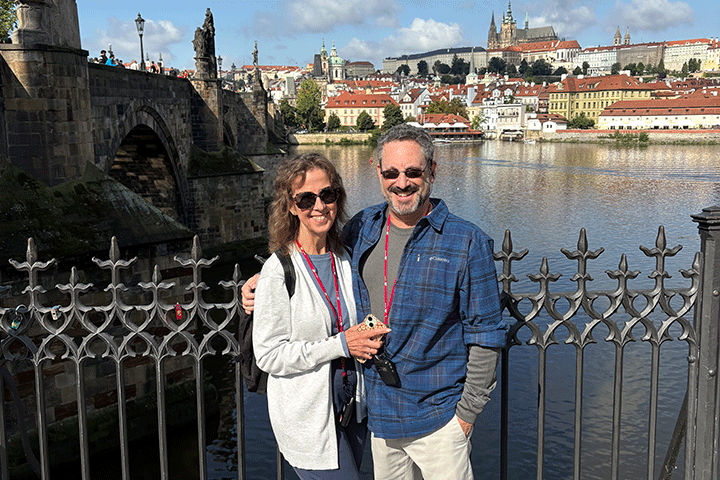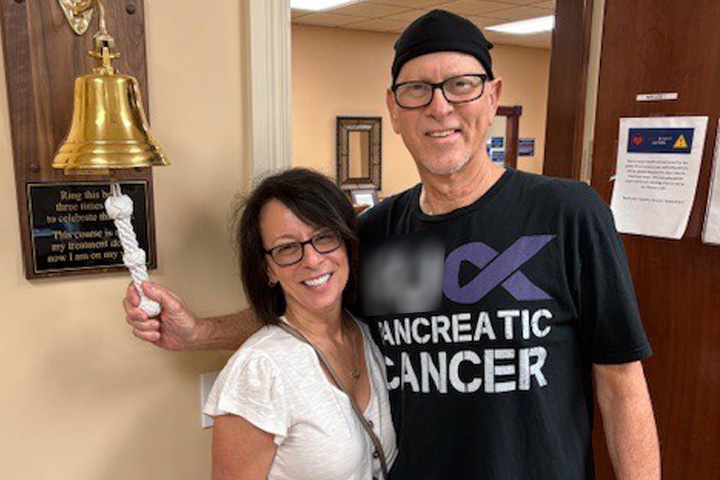A Routine Physical Saved My Life
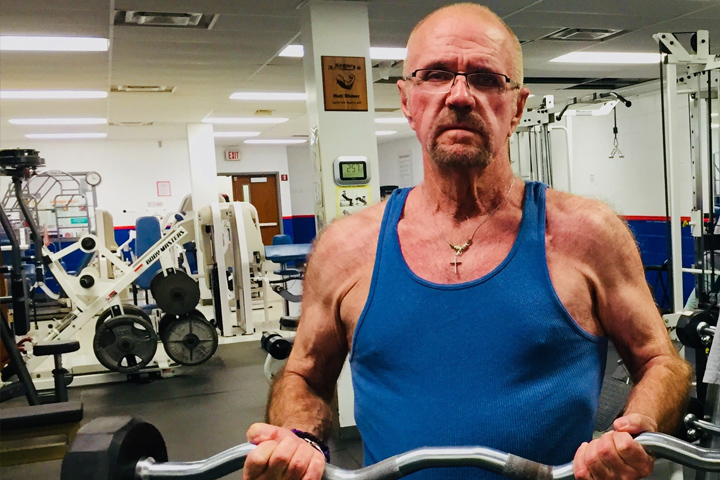
- Laparoscopic pancreatectomy surgery
- Stage IIb cancer
- Treatment with chemotherapy and radiation
On December 10, 2010, I went from a carefree retiree to a caregiver, when my wife had a major stroke in our TV room.
After a long hospitalization in Sioux Falls, South Dakota (268 miles from our home city of Fort Pierre), my wife and I returned home and I became a 24/7 caregiver. Over the course of the next couple of years, the extreme stress of being a caregiver began to take a toll on me. My own health began to deteriorate, especially my mental health, so my doctor recommended a regular workout schedule at a gym. My mental and physical health improved dramatically because of the exercise. I lost weight and my endurance increased.
On June 23, 2014, I went in to Dr. Thomas Huber, my long-time family doctor, for my annual physical. I was confident—I was in the best physical condition that I had been in for 10 years and felt very well. But Dr. Huber was concerned about my weight loss. I explained that I felt fine—I go to the gym; work on my farm; train hunting dogs; and I am a full-time caregiver. But he said, “We’re going to do a CT scan and see if anything is going on.” I emphasized, “But I’m not sick,” but he insisted, “I don’t care, we’re doing a CT scan anyway.”
I had the scan two days later, at 8:30 a.m., and shortly after Dr. Huber’s nurse called me and said, “Dr. Huber wants to see you at 11:00.” When I arrived at his office, Dr. Huber sat down in the chair next to me and said, “You’ve got to put your wife in a nursing home and get to Sanford Cancer Center in Sioux Falls immediately—you have pancreatic cancer.” I resisted, saying, “I’m not sick!” He said “Yes, John, you are very sick.” Turns out Dr. Huber saved my life.
Diagnosis Leads to Pancreatectomy
On July 2, I went to Sanford Cancer Center and met with the oncology nurse navigator, someone from the American Cancer Society, a genetic counselor, and numerous others. Over the next few days I had extensive testing. An endoscopic needle biopsy of my pancreas confirmed adenocarcinoma of the pancreatic tail. I also had a PET scan, CT scan, and blood work, in preparation for surgery on July 10.
Laparoscopic surgery was scheduled, with the “possibility” of a Whipple, depending on the invasive nature and extent of the cancer. I ended up having a four and a half hour laparoscopic distal pancreatectomy, which removed 60 percent of my pancreas, a splenectomy, and had 12 lymph nodes removed (five showed cancer cells). My cancer was stage IIb, and my surgical margins were clear. I was hospitalized for four days.
During my recovery from surgery I developed a pancreatic pseudocyst, a leakage of pancreatic fluid into the abdomen that is “walled off” by the body to protect the other organs. Two stents were inserted through my stomach into the pseudocyst to allow it to drain off until the surgical leakage healed.
Chemotherapy, Radiation, and More Chemotherapy
I began 13 weeks of Gemzar (gemcitabine) chemotherapy on September 2, 2014 at intervals of 3 weeks on and 1 week off to allow my blood to recover. After the first session of Gemzar, I had substantial mouth sores on my gums and lips, which disappeared after a week. Other than mild fatigue I had no side effects and was able to return to caregiving for my wife and regular exercise at the gym.
In January 2015, I began six and a half weeks of chemoradiation. I had radiation treatments to the pancreatic surgical bed Monday through Friday for 45 minutes along with a continuous infusion (by pump) of 5-FU for the entire six and a half weeks. This treatment caused more notable side effects but I continued caregiving, as well as going to the gym, although with a lighter regime.
In late February, 2015, I resumed an additional 13 weeks of Gemzar (gemcitabine) on the same schedule as the previous September. I completed all treatments on June 15, 2015. After treatment ended I developed a duodenal ulcer, probably caused by the radiation.
Life After Pancreatic Cancer Treatment
Since completing treatment I have had no recurrence of the cancer. Initially I was getting full CT scans and oncology appointments every three months, but now I get the scans every six months. I have a full blood work panel every three months to monitor the CA 19-9 pancreatic cancer marker. I continue my exercise regime. I have been told that my exceptional response to fighting pancreatic cancer—the surgery, chemotherapy, chemoradiation, and other procedures—was due to my exceptional physical condition pre-surgery and continued exercise during treatment.
I am alive because of my faith, good doctors, and family support. I give back by volunteering to tell my story. I raise awareness of the disease by chairing a committee in Pierre, South Dakota to inform the public about pancreatic cancer. I also share what I have learned from having pancreatic cancer.
- Build a relationship with your doctor. If he or she won’t listen, find one who will.
- Do not be afraid to ask for a second, third, or fourth opinion. Death has no shame. Doctors may be offended, but it’s not their life.
- Doctors say “Don’t look at the Internet—it’s all bad news.” That is not true—you have to take the time to determine valid information from invalid information. Pancreatic cancer is the ENEMY. In order fight any enemy, you have to know who you are fighting.
- General oncologists are too busy to keep up on current treatments. It’s up to the patient to HELP the oncologist by asking educated questions about various treatments.
- Seek clinical trials if necessary. And volunteer for clinical trials (if applicable) so that researchers can find out what drives pancreatic cancer and find a cure.
- Don’t give up. Treatment is not more difficult than basic training in the Army—I know because I am a Vietnam Veteran.
- Do get your affairs in order—it’s a smart thing to do. Make a will, do estate planning, and talk to your kids.
- Check your family history for pancreatic cancer. If more than one family member has had the disease, get genetic testing.
Most of all, don’t be afraid to be afraid. Pancreatic cancer is deadly. It’s OK to be afraid. But . . . don’t let AFRAID consume you.
John was interviewed by Sioux Falls television station KELO, about his pancreatic cancer treatment and advocacy work. Watch the report and read the story to learn more about John. He and his advocacy group were featured in the October 24, 2018 news report “Capitol to be lit purple for pancreatic cancer awareness.”

